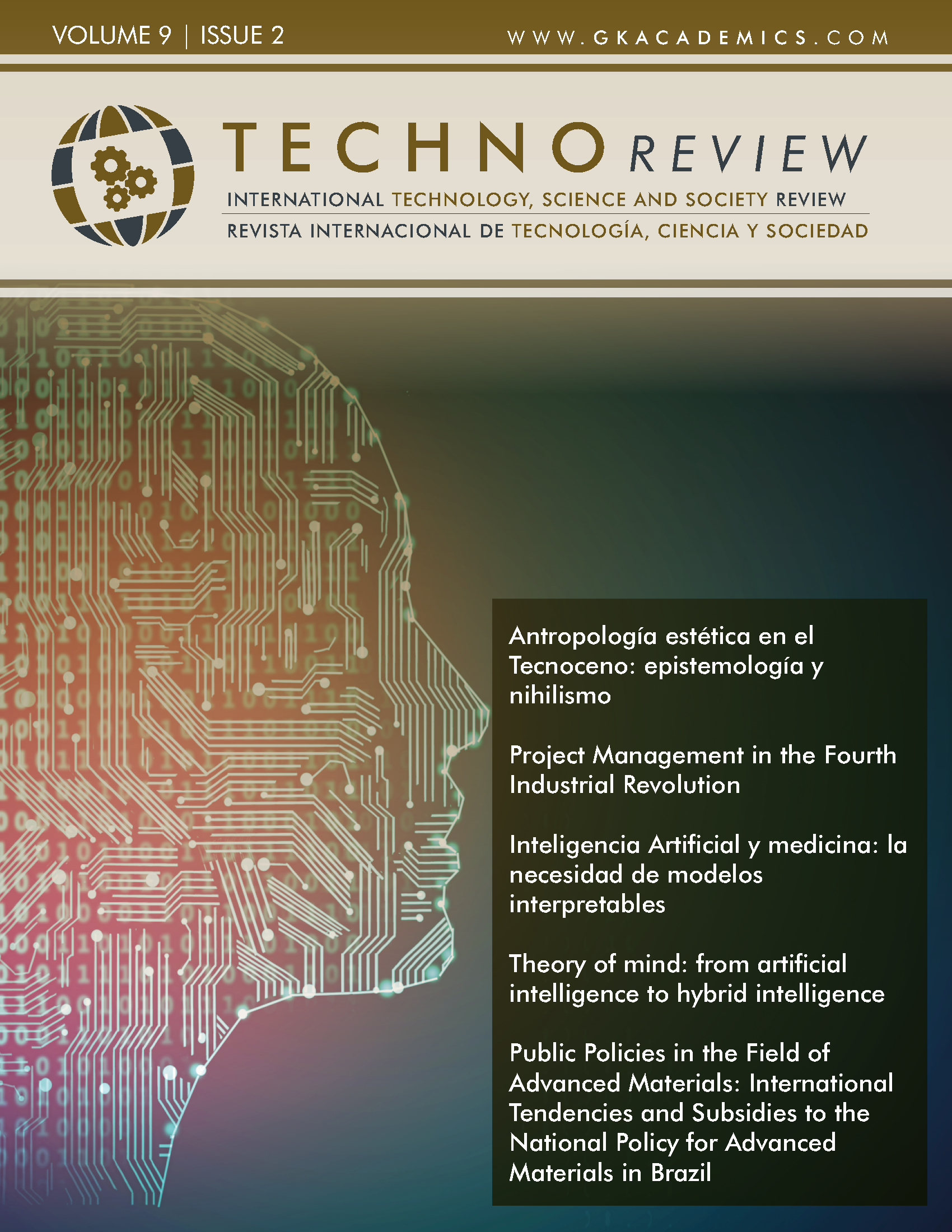Theory of Mind: From Artificial Intelligence to Hybrid Intelligence
DOI:
https://doi.org/10.37467/gka-revtechno.v9.2816Keywords:
Philosophy of mind, contemporary thought, Ray Kurzweil, artificial intelligence, theory of mind, hybrid intelligenceAbstract
Philosophy of mind has long ceased to be, if indeed it ever was, the exclusive domain of philosophers. In contemporary thought there is increasing interest in these matters from the point of view of technology. This paper gives a critique of the ideas of Ray Kurzweil and briefly reviews some of the recent trends in the treatment of these questions.
References
Arana, J. (2009). ¿Puede la libertad ser suplantada por elementos sucedáneos? Anuario filosófico, XLII/2, pp. 273-303.
Behe, M. J. (1996). Darwin’s Black Box. New York: Touchstone.
Carver, M. (2007). Minds and Computers. An Introduction to the Philosophy of Artificial Intelligence. Trowbridge, Wilts: Edinburgh University Press.
Chalmers, D. (1995). Facing up to the problem of consciousness. Journal of Consciousness Studies, 2(3), pp. 200-219. Accessible from http://www.imprint.co.uk/jcs.html.
Chalmers, D. J. (1996). The Conscious Mind, In Search of a Fundamental Theory. New York: Oxford University Press.
Clarke, A. C. (1999). Greetings, Carbon-Based Bipeds! New York: Ian T. Macauley.
Crick, F. (1994). The Astonishing Hypothesis: The Scientific Search for the Soul. New York: Scribner.
Davidson, D. (2006). Mental Events. In E. Lepore & K. Ludwig (eds.), The Essential Davidson (pp. 105-121). Oxford: Clarendon Press.
Dennett, D. (1991). Consciousness Explained. Boston: Little, Brown & Co.
Denton, M. (2002). Organism and Machine: The Flawed Analogy. In J. W. Richards (ed.), Are We Spiritual Machines? Ray Kurzweil vs, the Critics of Strong A. I. (pp. 78-97). Seatle: Discovery.
González Quirós, J. L. (1998). El porvenir de la razón en la era digital. Madrid: Síntesis.
González Quirós, J. L. (2009 a). El trabajo intelectual en el entorno digital: nuevas formas de escritura y erudición. Arbor, CLXXXV, 737, pp. 541-550.
González Quirós, J. L. & Gherab Martín, K. (2009b). Arguments for an Open Model of e-Science. In B. Cope & P. Angus (eds.), The Future of the Academic Journal (pp. 63-83). London: Chandos Publishing.
González Quirós, J. L. & Puerta, J. L. (2009c). Tecnología, demanda social y medicina del deseo’. Medicina Clínica [MedClin(Barc).2009. doi:10.1016/j.medcli.2009.07.002]
Hawkins, J. & Blakeslee, S. (2004). On intelligence. Nueva York: Times Books.
Huang, G. T. (2008). Essence of thought. New Scientist, 02624079, 5/31/2008, 198(2658).
Juengst, E. (1998). What does enhancement mean? In E. Parens (ed.), Enhancing Human Traits: Ethical and Social Implications. Washington, D.C.: Georgetown University Press.
Kurzweil, R. (1999). The Age of Spiritual Machines. New York: Penguin.
Kurzweil, R. (2005). The Singularity is Near. New York: Penguin.
Lepore, E. & Ludwig, K. (eds.) (2006). The Essential Davidson. Oxford: Clarendon Press.
Mullins, J. (08 July 2009). Memristor minds: The future of artificial intelligence. The New Scientist, 2715. Can be found at http://www.newscientist.com/article/mg20327151.600-memristor-minds-the-future-of-artificial-intelligence.html?full=true
Ortega y Gasset, J. (1962). La rebelión de las masas. Obras completas. IV. Revista de Occidente. Madrid.
Ortega y Gasset, J. (1996). Meditación de la técnica y otros ensayos sobre ciencia y filosofía. Revista de Occidente.
Pershin, Y. V., La Fontaine, S. & Di Ventra, M. (2008). Memristive model of amoeba's learning. At http://arxiv.org/abs/0810.4179
Putnam, H. (1999). The threefold cord: Mind, body, and world. New York: Columbia University Press.
Richards, J. W. (ed.). (2002). Are We Spiritual Machines? Ray Kurzweil vs, the Critics of Strong A. I. Seatle: Discovery.
Russell, B. (1995). My Philosophical Development. London: Routledge.
Schrödinger, E. (1992). What is Life?, with Mind and Matter & Autobiographical Sketches. Cambridge: Cambridge University Press.
Sherrington, C. S. (1940). Man on his Nature. Cambridge: Cambridge University Press.
Searle, J. (2002). I Married a Computer. In J. W. Richards (ed.), Are We Spiritual Machines? Ray Kurzweil vs, the Critics of Strong A. I. (pp. 56-78). Seatle: Discovery.
Smullyan, R. (1984). 5000 B.C. and Other Philosophical Fantasies. St. Martin's Press.
Tallis, R. & Aleksander, I. (2008). Computer models of the mind are invalid, (text by Tallis followed by a discussion between both authors). Journal of Information Technology, 23, 55–62. doi:10.1057/palgrave.jit.2000128
Wolbring, G. (2005). The Triangle of Enhancement Medicine, Disabled People, and the Concept of Health: A New Challenge for HTA, Health Research, and Health Policy. Health Technology Assessment Unit, Alberta Heritage Foundation for Medical Research, HTA Initiative 23, December 2005.
Downloads
Published
How to Cite
Issue
Section
License
Those authors who publish in this journal accept the following terms:
- Authors will keep the moral right of the work and they will transfer the commercial rights.
- After 1 year from publication, the work shall thereafter be open access online on our website, but will retain copyright.
- In the event that the authors wish to assign an Creative Commons (CC) license, they may request it by writing to publishing@eagora.org







